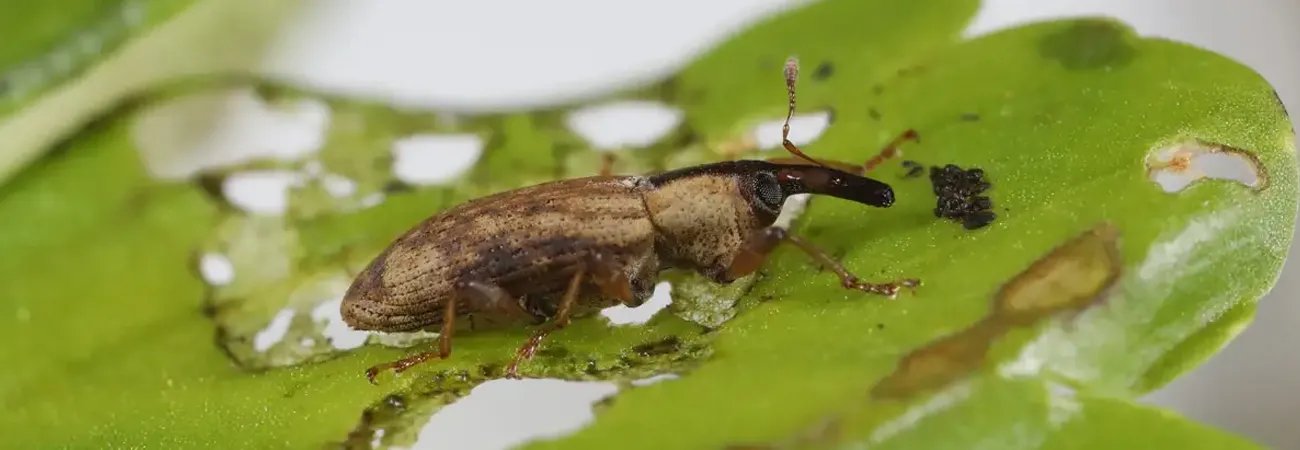i ECONOMY
Biological control methods like stem-boring weevils (Listronotus Setosipennis) offer a promising and effective solution to the invasive weed parthenium. By integrating these methods into the organic farming practices, Pakistan can further enhance agricultural productivity while preserving its rich biodiversity. Muhammad Bilal Ashraf Khan, Scientific Officer at the National Agricultural Research Centre (NARC), said this while talking to WealthPK. “Organic farming is the art of producing herbs, vegetables, and crops without using any chemical fertilizers and harmful pesticides. In Pakistan, organic farming is gaining momentum due to its environmental benefits and potential for higher profit margins. One of the promising strategies being explored in the realm of organic farming is the use of biological control agents, such as the stem-boring weevil,” he said.
“In Pakistan, one of the major challenges in agriculture is the management of invasive weeds such as parthenium. Without control measures against parthenium, the negative impacts of this weed will go unchecked, with detrimental effects on native biodiversity as well as crop productivity,” he said. “Parthenium is an extremely damaging weed in Pakistan and there are not many sustainable and effective management options for its control. Biological control may offer a solution, provided that effective and safe agents are released. “The use of biological control agents like the stem-boring weevil aligns well with the principles of organic farming. By eliminating the need for chemical pesticides, the farmers can reduce their production costs and minimize their impact on the environment. Moreover, organic farming can increase the yield as compared to the conventional farming,” Bilal added.
In April 2019, a colony of 200 adult L. setosipennis was imported from ARC-PPRI, South Africa, which strengthened the biological control program against this weed in Pakistan. Listronotus Setosipennis is a nocturnal weevil which lays its eggs in the flowers of parthenium. The hatched larvae burrow into the stem and feed there, ultimately killing the seedlings and mature parthenium plants. He said the risk of releasing weevil for the control of parthenium was extremely low while the benefits were likely to be huge.
In this regard, the PARC, in collaboration with the Centre for Agriculture and Biosciences International (CABI), has taken a significant step towards combating parthenium that poses various risks to biodiversity, human and animal health, as well as food security in Pakistan. This collaboration is a major step towards addressing the issue with confidence and determination. The efforts of the PARC and CABI will go a long way towards safeguarding the environment, human and animal health, and food security in Pakistan. A sustainable approach to managing parthenium has been introduced through the release of 500 stem-boring weevils at the NARC.
According to Dr. Ghulam Muhammad Ali, Chairman of PARC, the use of pesticides to combat the threat of parthenium weeds has been increasing, posing a significant risk to the organic agricultural industry. However, the introduction of stem-boring weevils is a groundbreaking advancement that can help ensure organic agriculture in Pakistan. This permanent, eco-friendly, and cost-free solution is vital in mitigating the dangers of parthenium.
Credit: Independent News Pakistan (INP)









